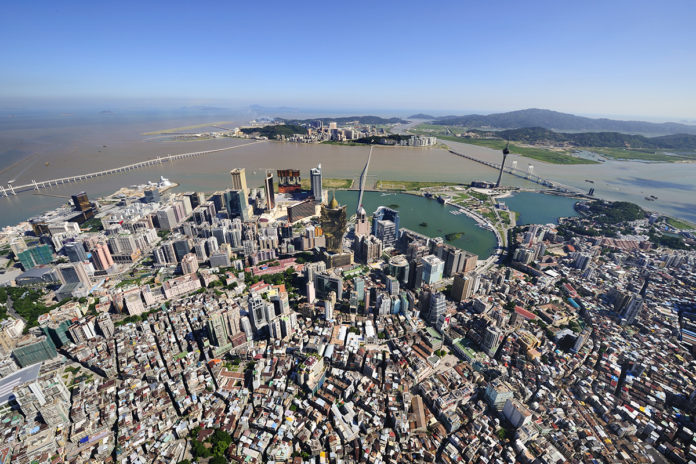Casino culture is altering the city’s academic landscape with the University of Macau launching a master’s degree in resort management The University of Macau will introduce a master’s degree programme next year that meets the demand for managers in Southeast Asia’s casino-led resorts. Domestically, it is hoped that the two-year course will cultivate more talented executives who will climb to senior posts. Classes begin in August and will be held in English. The programme coordinator of the Master of Science in International Integrated Resort Management Amy So Siu Ian, told Macau Business the course is a response to changes in the labour market and society’s needs. “In the past, gaming development was more about casinos. Nowadays the trend isn’t to manage one casino only but an integrated resort,” says Ms So, who also leads the university’s bachelor programme in hospitality and gaming management. “Therefore we feel it’s time to open a higher level programme to help develop Macau.” Planning for the new course began two years ago, according to the director of the university’s Institute for the Study of Commercial Gaming, Davis Fong Ka Chio. With Macau poised to shape itself as an international leisure destination, Mr Fong says his academics knew that integrated resorts would be one component of the city’s overall offering. “A master’s degree is important to boost a person’s managerial capabilities and help them move upwards in a company,” he says. Filling gaps Mr Fong says the building of integrated resorts is a global trend, one that is on the rise throughout Asia. It is also an era of full-on competition for talent from every corner of the world. Macau must have an “international horizon”, with the ambition that the course’s graduates “can go beyond Asia”. “In a broader sense, we hope to foster more talents for Macau in order to become a world travel and leisure hub,” he says. Course graduates will have the capability to “think in an integrative way” and manage a business with a high degree of quality and efficiency. Ms So says the course should produce senior managers, helping middle management move ahead and filling gaps where “personnel lack high-level training”. “The graduates have to have the basic knowledge of how to run an entire integrated resort, instead of just one particular area of management,” she says. Macau Gaming Industry Employees Association president João Bosco Cheang Hong Lok welcomes the university’s approach. He says the master’s course will be a stepping stone for employees to win promotions to middle and senior management roles. The benefit will be felt city-wide. Far and wide Course applications open at the end of January and just 30 places will be offered, with the majority reserved for Macau residents. Ms So says her ideal students are mid-level managerial executives, preferably employed by hotels, resorts or casinos in Macau. Candidates with industry experience, sound academic qualifications and outstanding English language skills may be given priority. Classes will be conducted at night and no more than four times each week to meet executives’ intense work schedules. In addition, the school has been contacting “renowned” professors from abroad, including the United States, and senior executives in resorts here to lecture to the students. Their response has so far been very supportive, Ms So says. The programme will include a study trip that will take the students to visit resorts overseas, get to know their management models and gain access to their senior executives. Courses will cover human resources, strategic management, integrated resort introduction, hotel management, gaming management, food and beverage, events, and meetings, incentives, conventions and exhibitions (MICE). Strong interest While the syllabus covers a range of traditional hospitality topics, Mr Fong emphasises that the focus will be on the resort setting. “For example, hotel management is a very traditional course subject on its own but from the perspective of integrated resorts, we will no longer look at how much a customer spends on a room per night but their overall consumption at the resort as well as their lifetime total value for the property, because people are likely to visit the same integrated resort more than one time in their lives. From there, different marketing, MICE and gaming planning can be laid out,” he says. Reluctant to disclose the tuition fee, Mr Fong says it will be “close” to the cost of other master’s courses at the university’s Faculty of Business Administration, “or just a little bit higher because a lot of resources have been put into it”. The university charges a minimum of MOP68,000 (US$8,500) for courses at the business school, according to the university website. Both Mr Fong and Ms So predict an overwhelming response when applications open. “We keep receiving enquiries about the course and have even got calls from very senior executives asking if we can reserve a place for them,” Mr Fong says. Mr Cheang says he wants companies to give local graduates the opportunities to execute what they have learnt and to support the government’s policy to gradually reduce reliance on non-local skilled labourers. “Training is pointless if no one is willing to use the talents afterwards,” he says. Stepping stones to success The Macau government has been urging the six gaming operators to use as many resident employees as possible and has enforced several measures to reduce the number of imported workers on casino floors. The president of the Macau Gaming Industry Employees Association, João Bosco Cheang Hong Lok, believes companies are acting in response to the call and have shown their willingness to promote home-grown talent. “Each employee has their own score based on their work performance and if the score reaches a certain level a pay rise or job promotion will be offered,” Mr Cheang tells Macau Business. “If you’re in the company for two years and still have no progress, you can also go to check with the office to find out the reasons and thus improve accordingly.” According to Mr Cheang, who was a directly-elected legislator between 2001 and 2005, there are currently no overseas casino supervisors working in Macau since the government’s decision to cease renewing their work permits starting from 2009. Work permits for foreign pit managers are not being renewed, starting this year, he says. Mr Cheang’s association trains about 300 croupiers every three and a half months and provides a variety of certification courses to casino workers that are fully subsidised by the government. He says people are keen to upgrade their skills and they understand the more skills and knowledge they possess, the higher work appraisal scores they will be given. Language classes in Mandarin, English and Japanese are the most popular among the courses offered. Mr Cheang wants gaming operators to share the responsibility of training workers but says his experience is that their company-focused internal training does not produce high-quality employees.
—
























